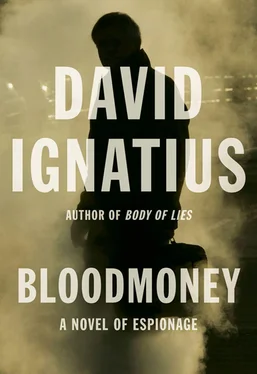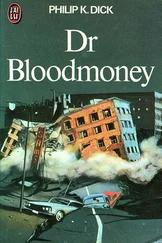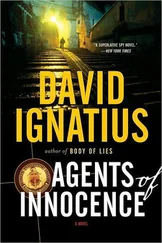David Ignatius - Bloodmoney
Здесь есть возможность читать онлайн «David Ignatius - Bloodmoney» весь текст электронной книги совершенно бесплатно (целиком полную версию без сокращений). В некоторых случаях можно слушать аудио, скачать через торрент в формате fb2 и присутствует краткое содержание. Жанр: Шпионский детектив, на английском языке. Описание произведения, (предисловие) а так же отзывы посетителей доступны на портале библиотеки ЛибКат.
- Название:Bloodmoney
- Автор:
- Жанр:
- Год:неизвестен
- ISBN:нет данных
- Рейтинг книги:4 / 5. Голосов: 1
-
Избранное:Добавить в избранное
- Отзывы:
-
Ваша оценка:
- 80
- 1
- 2
- 3
- 4
- 5
Bloodmoney: краткое содержание, описание и аннотация
Предлагаем к чтению аннотацию, описание, краткое содержание или предисловие (зависит от того, что написал сам автор книги «Bloodmoney»). Если вы не нашли необходимую информацию о книге — напишите в комментариях, мы постараемся отыскать её.
Bloodmoney — читать онлайн бесплатно полную книгу (весь текст) целиком
Ниже представлен текст книги, разбитый по страницам. Система сохранения места последней прочитанной страницы, позволяет с удобством читать онлайн бесплатно книгу «Bloodmoney», без необходимости каждый раз заново искать на чём Вы остановились. Поставьте закладку, и сможете в любой момент перейти на страницу, на которой закончили чтение.
Интервал:
Закладка:
Everyone was silent. This was big, market-moving information if it was true.
“Well, fancy that,” said Perkins. “I like it. In fact, I love it. Let’s do what the new kid says. What say, Ivor?”
Ivor Fyfe, the firm’s chief risk manager, was skeptical. He dealt in probabilities, and it was highly improbable that this new analyst, whom nobody had ever heard of, could come up with such a scoop. He enforced the firm’s self-protective trading rules, which mandated that any trader whose account was down 5 percent be put on watch, and the account of any trader who lost 10 percent be suspended. Now this neophyte, fresh off the street, was proposing to gamble with the capital of a firm she hadn’t yet been invited to join. It offended him.
“Not to rain on the parade,” said Ivor, “but how do you ‘know’ this, Miss Marx? I mean, did a little Russian birdie tell you?”
“I have a friend in Ukraine,” Sophie answered. “He just visited Lviv, near where the pipeline has one of its transit stations. He heard about the problem yesterday. They’re trying to hush it up, but people in the town know about it. He says it’s a big deal.”
Perkins goaded her.
“And why is it such a big deal, please?”
“It’s big because the rupture came just after the point where the two feeder pipelines, Soyuz and Brotherhood, join up and form the Trans-Gas line. I checked this morning. The pipeline throughput into Poland has stopped. They say it’s just routine maintenance. But it isn’t.”
Perkins’s eyes were flashing. He was excited.
“So tell us, Miss Marx: Should we make a big bet here?”
She nodded vigorously. Her ponytail flapped against the back of her neck.
“Ivor? Last chance to be a skunk.”
Fyfe looked glum, but he nodded and said, almost inaudibly, “Okay.”
“Let’s do it, then. Call Stan in here, someone. He can coordinate the trades.”
Stan Ferber was summoned: He followed Russian securities, and he helped plan the trading strategy for the day. They would move decisively, but veil their hand wherever possible, taking positions before the information got out and the markets turned. The oil and gas positions were long; the Russian equity positions were short.
Sophie went back to her desk to watch the action. There was an animal intensity on the trading floor. The whole room seemed to know within sixty seconds that they were about to make some very large bets on the strength of a tip from a newcomer who had just walked in the door.
Perkins ambled over to her desk, amid the controlled pandemonium of the trading preparations.
“I’ve corrupted you,” he said. There was a curious look on his face.
For most of that day, Alphabet Capital got killed in the markets. Gazprom put out a statement that it was conducting routine maintenance in Ukraine and Poland, and most traders accepted it at face value. By noon, the firm was down over two hundred million dollars, on paper, and by early afternoon the losses had risen to over three hundred million and were still increasing.
Ivor Fyfe went to see Perkins at one-thirty. The risk manager’s job was to do just that-limit the firm’s exposure to large market swings-and he didn’t like what was happening. On a typical day, Alphabet Capital made or lost half a percentage point on its portfolio. If it limited its risk to one point a day, it stood to make a solid 16 percent return annually, in good markets and bad. If it risked three percentage points, it could make a much more exciting 48 percent return. But Perkins was blowing out even that risk-reward formula, based on the musings of a pretty new analyst, and Ivor wasn’t happy.
After the risk manager’s visit, Perkins summoned Sophie to his office. The losses were still mounting, and the whole firm watched her travel the floor, as if she were a prisoner heading for the hangman’s noose. But she walked out several minutes later with a big smile, and Perkins followed her a few moments after that and instructed his traders to double down their bets. A jokester in the back of the room sent an IM to his friends: office pool: did miss energy just give the boss (a) a blow job, (b) a rim job, (c) a spanking?
The markets began to turn that afternoon, just after two-thirty when the New York exchanges opened. Word was out that Alphabet was making some large bets, and traders were spinning rumors. A little after three o’clock, Bloomberg carried a story saying there were reports that the Russian pipeline problem might be more than regular maintenance. At four, the first story appeared citing rumors that the pipeline had ruptured. Gazprom still wasn’t commenting, but anything Russian was getting pounded now, as the markets began to bet the rumors might be real.
Gazprom issued a statement at eight forty-five p.m., London time, as the New York markets were about to close, confirming that its main supply pipeline to Europe had ruptured. Full repairs might take three weeks to a month. There was a global trading frenzy. Alphabet’s positions, which at midday had been down three hundred million dollars, were now up by nearly three times that amount.
Sophie Marx had just made Alphabet Capital nearly a billion dollars. Stan Ferber, the chief Russia trader, went over to Marx’s desk with a bottle of champagne after the Gazprom announcement moved on the wires. He poured a glass for his new energy analyst, to applause from the traders nearby.
While Sophie was drinking her champagne, Perkins emerged from his office. People thought he had come to join in the celebration, but his face was tight. When he reached Sophie’s desk, he spoke into her ear and asked if she might be free for dinner that night, as soon as the closing bell rang in New York. He looked oddly glum. Ferber and the others pulled back and returned to their desks.
“What’s wrong?” she asked. “You’re a winner.”
“This used to be more fun when we were making real bets,” Perkins said quietly. “It’s too easy playing with a marked deck.”
“So quit,” she said.
He stared at her for a long moment, as if he didn’t think that were possible.
23
Perkins wanted to get out of London. He proposed flying to Paris in his G5 for a late dinner. He would call Jean-Marie at Taillevent, who would hold a table for them. Sophie thought he was joking, but she didn’t understand: She had just made Perkins’s firm a billion dollars. If she spent a million dollars a day, five days a week, it would take nearly four years to work through that stash. Why shouldn’t she fly on a private jet to Paris for dinner? Money truly didn’t matter when there was so much of it. That was unnerving for Sophie, who had grown up wishing for the things that money could buy. But as she was packing her overnight bag in her room at the Dorchester, her phone rang. It was Perkins.
“It’s too late,” he said. She wasn’t sure at first what he meant. “My pilot says we can’t get a landing slot in Paris until tomorrow morning. He thought I was daft.”
They settled on the River Cafe, which was outside central London, but only barely. It was a stylish place on the Thames, up near Hammersmith. The interior was shades of blue, a sea-bright carpet and an aquamarine wall, set against the gleaming stainless steel of the open kitchen. Perkins was a regular; he went to places he liked, where risk of a bad meal was low.
Perkins took off his jacket and rolled up his sleeves, and in the low light of the restaurant he didn’t look quite so much like the Pacman. Sophie had been wearing a tight, tailored jacket over a blue blouse. She threw her jacket over a chair, too. One thing about being rich, momentarily, was that you could afford to be untidy. She was a handsome woman: supple, bright-eyed, her face always on the verge of a mischievous smile. And on this evening, relaxing in the afterglow of a successful day, he was a handsome man: shy in the way that famous people are, looking for the things in life that didn’t have a price tag.
Читать дальшеИнтервал:
Закладка:
Похожие книги на «Bloodmoney»
Представляем Вашему вниманию похожие книги на «Bloodmoney» списком для выбора. Мы отобрали схожую по названию и смыслу литературу в надежде предоставить читателям больше вариантов отыскать новые, интересные, ещё непрочитанные произведения.
Обсуждение, отзывы о книге «Bloodmoney» и просто собственные мнения читателей. Оставьте ваши комментарии, напишите, что Вы думаете о произведении, его смысле или главных героях. Укажите что конкретно понравилось, а что нет, и почему Вы так считаете.












